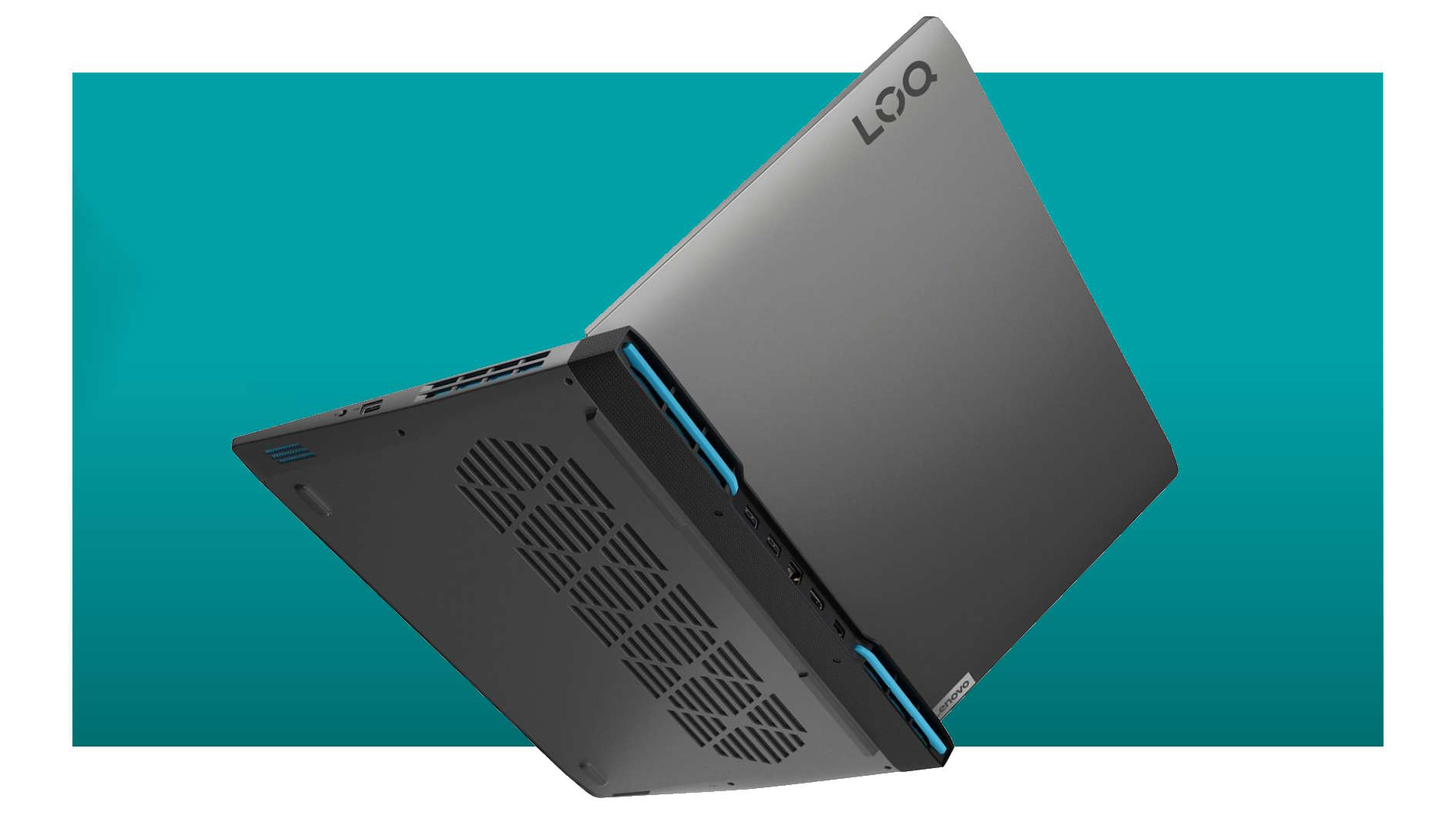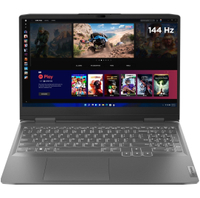This Lenovo gaming laptop made no sense at full price, but now the Legion LOQ is under $700 it's actually a flat out bargain
The Legion LOQ was once a budget gaming laptop with an unfeasibly high price. Now, with $400 knocked off the sticker price it's a great cheap machine.

Lenovo LOQ | Ryzen 7 7840HS | RTX 4050 | 15.6-inch | 1080p | 144 Hz | 8GB DDR5 | 512GB SSD | $1,099.99 $699.99 at Best Buy (save $400)
When I reviewed this exact Lenovo LOQ laptop I wasn't totally blown away because at the time it was retailing for full price. At $1,100 it's a lot of money for such a machine. At under $700, however, it's a bit of a bargain. I can overlook the 8GB of RAM considering it's simple to upgrade, and the same goes for the 512GB SSD when there is a spare M.2 slot inside. That 95W RTX 4050 compares surprisingly well with the RTX 4060, and the AMD Ryzen CPU is excellent. This is a great little budget machine at this price.
The Legion LOQ range of gaming laptops was meant to be Lenovo's take on the budget side of the market, except when we got our first look at this RTX 4050-powered machine it was anything but budget. At its initial $1,100 sticker price there was no way I could realistically recommend it as a genuine purchase, but now the Legion LOQ is just $700 at Best Buy today.
As I said in Legion LOQ review, grabbing the machine with a hefty discount makes it worthwhile, but I wasn't necessarily envisioning it going below the $700 mark, even just by a penny.
For this price its negative points don't become such a glaring issue. That RTX 4050 isn't really the mobile GPU that I'd recommend in a gaming laptop, but given that it's a 95W version that performs surprisingly well compared with a 75W RTX 4060 I'm not so down on it at this price. In fact, it performs as well in standard 1080p gaming terms as the Gigabyte G5 KF we've loved so well, and absolutely hoses the MSI Cyborg 15 with its 45W RTX 4060.
Those are two budget gaming laptops that will normally be priced higher than this Lenovo machine, yet aren't necessarily beyond it in terms of gaming performance. And then you also have the excellent AMD Ryzen 7 7840HS CPU, which is an outstanding processor, that seriously delivers for this money.
Though if you were hoping to be able to use the integrate Radeon 780M for some battery life enhancing gaming away from a plug socket—it is after the iGPU behind the most powerful gaming handhelds—you're out of luck. Because this is the other major failing of the Legion LOQ at full price: its 8GB of single channel memory.
That's not enough to keep the integrated graphics chip running at its best, but thankfully it's also one of the cheapest upgrades you can make. And also one of the easiest, thanks to how accessible the innards of the machine are.
That also mitigates the issue of the 512GB SSD, too, because the LOQ has a spare M.2 slot inside, meaning you can literally just drop in a fresh new SSD to boost the storage in little more than 10 minutes.
The screen's maybe a bit dingy, and that's not something that you can do anything about, but at this sub-$700 price, the Lenovo Legion LOQ suddenly becomes a budget gaming laptop that makes sense. The chassis is solid, if a little chonky, the keyboard classically great in the Lenovo way, and that 95W RTX 4050 is a surprisingly capable gaming GPU.
So, while it is a proper budget gaming laptop, it doesn't actually feel that budget when you're using it... so long as you get a little more memory in there anyways.
Keep up to date with the most important stories and the best deals, as picked by the PC Gamer team.

Dave has been gaming since the days of Zaxxon and Lady Bug on the Colecovision, and code books for the Commodore Vic 20 (Death Race 2000!). He built his first gaming PC at the tender age of 16, and finally finished bug-fixing the Cyrix-based system around a year later. When he dropped it out of the window. He first started writing for Official PlayStation Magazine and Xbox World many decades ago, then moved onto PC Format full-time, then PC Gamer, TechRadar, and T3 among others. Now he's back, writing about the nightmarish graphics card market, CPUs with more cores than sense, gaming laptops hotter than the sun, and SSDs more capacious than a Cybertruck.


